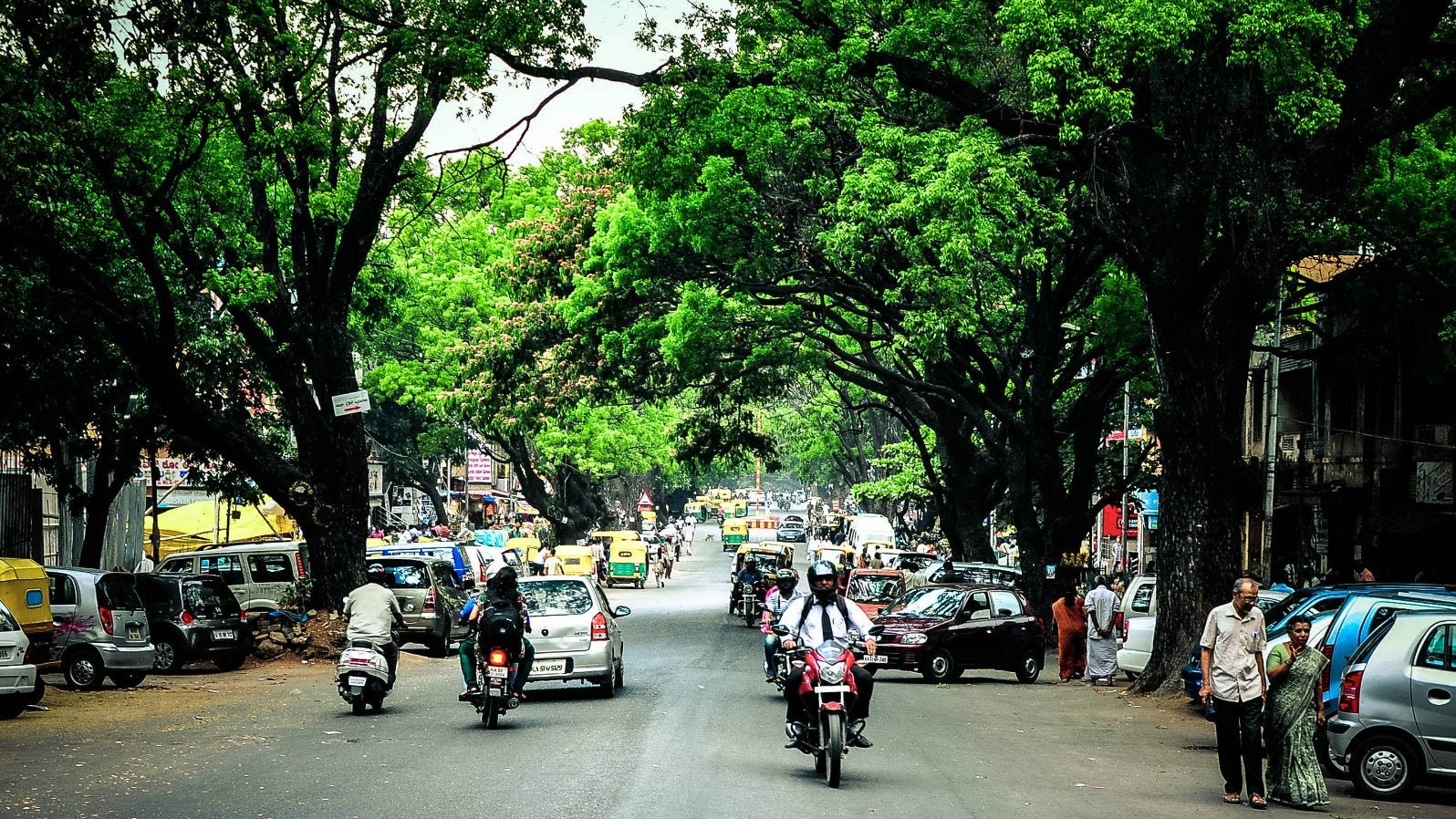Locals in India’s Silicon Valley are finally rising up against the relentless destruction of their city
For almost everyone who knew Bengaluru before it became India’s Silicon Valley, its transformation into a metropolis has been cause for concern.


For almost everyone who knew Bengaluru before it became India’s Silicon Valley, its transformation into a metropolis has been cause for concern.
Over the past 20 years, the “garden city” of India has sacrificed thousands of trees and several lakes to accommodate the demands of a growing population lured by the promise of well-paying jobs. With every year, Bengaluru’s famously salubrious climate, a function of its elevated geographical location, becomes an even more distant memory.
So, in September, a section of Bengaluru’s citizens decided they had had enough.
When the Karnataka government approved an expensive and potentially destructive project to build a 6.7-kilometre steel flyover, supposedly to unclog the road to the city’s airport, it faced resistance.
The flyover, which would stretch from Basaveshwara circle to Hebbal, is expected to cost around Rs1,800 crore but the real cost would be environmental: the cutting down of over 800 trees could deal a body blow to Bengaluru’s already diminished green cover. That the government has promised to plant 60,000 saplings elsewhere is of little consolation. If completed, the flyover would also damage or displace several iconic heritage sites, including the 150-year old state guesthouse, the Indira Gandhi musical fountain, and the city’s planetarium.
The proposal for the flyover was first presented earlier this year but was put on hold following criticism by experts and locals, including prominent Bengaluru residents such as Biocon’s Kiran Mazumdar-Shaw and Flipkart’s Sachin Bansal. The project’s hasty approval just a few months later has, thus, sparked concerns over a serious lack of transparency and accountability.
By now, the grassroots movement against the project has gathered momentum, with a viral hashtag to boot (#SteelFlyoverBeda, which in Kannada means “No steel flyover”). It is being spearheaded by groups such as the Namma Bengaluru Foundation, an organisation dedicated to bettering Bengaluru, and Citizens for Bengaluru; the latter started out last month with just a few locals lamenting the state of affairs on Facebook.
The movement has now evolved into an important voice against destructive change in the city, starting with the flyover project, which activists argue will do little to solve the chronic traffic problem.
“(The flyover) is wrong in both form and function, that’s what the experts have said,” Prakash Belawadi, an actor and one of the co-founders of Citizens for Bengaluru, explained.
On Oct. 16, the group organised a human chain protest that gathered support from over 8,000 people, ranging from the young to the old, and including both locals and foreign expats. The number far exceeded the group’s expectations, according to Belawadi, and provided the necessary momentum to the movement to resist the government’s decision.
The Karnataka government is unruffled, though, and is adamant on flagging off the two-year project. Chief minister Siddaramaiah maintains that the approval process was transparent and that a vast majority of the population is in favour of building the flyover.
And though the National Green Tribunal has issued a stay on its construction for four weeks, saying the project had not been granted environmental clearance, members of Citizens of Bengaluru recognise that much more needs to be done to mobilise opposition.
On Nov. 06, the group plans to organise a hunger strike. It’s also mounting a legal case against the project, with plans to file petitions in various courts, as well as a “Right to Information” campaign and student rallies across the city. Moreover, the group is arranging a short film competition, presided over by Kannada movie director Pawan Kumar, to encourage citizens to voice their concerns. But most importantly, there are plans to conduct an independent environmental assessment of the project with experts from the Indian Institute of Sciences and other institutes to counter the government’s claims.
“We need an overall master plan for this city that is cleared by the citizens and has been vetted by real independent experts,” Belawadi said, noting that Bengaluru’s current state requires the government to promote “sustainable mobility.”
“The idea is not to keep on increasing road space but to use the available road space in an efficient way, where what is moved is people and not just vehicles,” Belawadi added. “That means you reduce dependency on personal transport and make a shift towards mass public transport.”
With around 500,000 vehicles being added to Bengaluru’s choked roads every year—making the total over 6,000,000 this year—the need to change the city’s way of life and, indeed, its very design is evident. The flyover project comes nowhere close to solving these problems. That makes this citizens movement all the more pertinent.
Image by Spiros Vathis on Flickr, licensed under CC BY-ND 2.0.